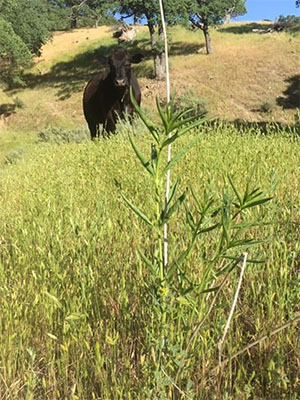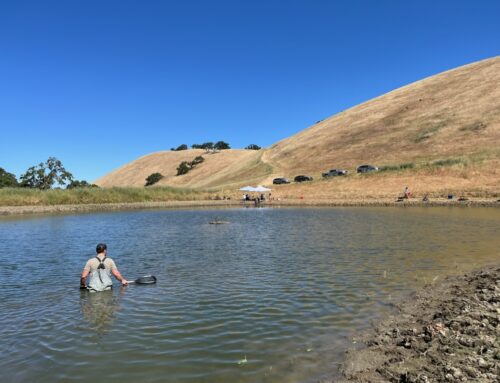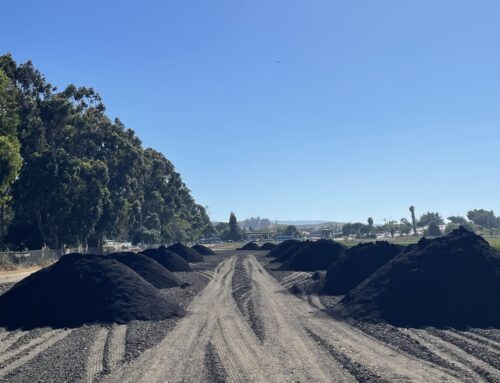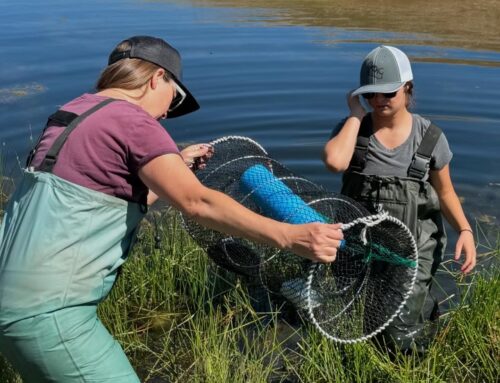Livermore, CA – December 11, 2019. The Alameda County Resource Conservation District (ACRCD) is leading the charge to combat monarch butterfly decline thanks to a partnership with the 3 Calhoun Sister’s Ranch. This week a total of 1,600 drought-tolerant native plants, including milkweed, will go in the ground at the 3 Calhoun Sister’s Ranch, with the help of the California Conservation Corps.
Western monarch populations have plummeted by 99% since the 1980s due to a multitude of threats, including pesticide exposures, climate change, and habitat loss in breeding grounds and at overwintering sites. Scientists fear they will be extinct within the next 20 years. Planting milkweed and other native nectar-producing plants can restore breeding and migratory habitat in California.
“Monarch caterpillars only eat milkweed. A couple of years ago we found some milkweed, a monarch, and monarch eggs on our ranch in Livermore,” says Merry Calhoun Carter, one of three sisters who own the ranch. This simple observation led the trio of sisters to partner with the Natural Resources Conservation Service (NRCS) and the ACRCD to work on monarch conservation on their land.
The plants going in the ground at the Calhoun ranch were part of a planting kit grown by Hedgerow Farms with funding from the Xerces Society for Invertebrate Conservation.
This important work on rangeland does have a hurdle to jump. “Milkweed, the monarch host plant, can be perceived as being toxic to cattle. We’re working to change that perception and demonstrate that cows and milkweed can co-exist,” says Nancy Calhoun Mueller, another of the Calhoun sisters. “Ranchers can be excellent land stewards and really make a difference for the endangered butterfly.”
“That is why working with ranchers to restore milkweed on rangelands in California is so important! Over 50% of agricultural lands in California—40 million acres—are grazed by cattle. There is the potential to make a big impact if more ranchers follow the 3 Calhoun Sisters lead,” adds Hillary Sardiñas, a Biologist with the ACRCD.
The Calhoun sisters plan to showcase their planting sites to other ranchers in the region to inspire additional habitat restoration projects.
“We’re just doing our part,” says Susie Calhoun. “But monarchs need everyone to do their share in order to save their species.”
Ranchers interested in developing monarch restoration projects can contact the ACRCD for more information. The ACRCD was recently awarded a California Association of RCD’s Wildlife Conservation Board Monarch block grant to support planning of additional plantings in the region.
The ACRCD provides technical and educational services for natural resource conservation and agriculture enhancement. The ACRCD collaborates with many partners including private landowners, local, state and federal agencies and other organizations to develop and implement various conservation and agricultural strategies. ACRCD works closely with public agencies and
private sector companies to help achieve conservation-based goals.
Contact: Hillary Sardiñas, Hillary.sardinas@acrcd.org, (925)-453-3865







Leave A Comment